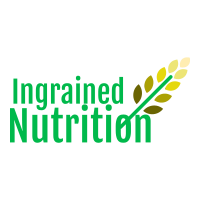There has been a lot of hype regarding types of milk in recent years. It is by far one of the most asked questions we get, and one of the biggest myths we like to bust.
For example, clients often tell us that they don’t drink low fat milk because of the “added sugar.” This is a really common misconception. No sugar is added to lite or skim milk. However, when the fat is removed, there is slightly more of the naturally occurring lactose and all the other milk components. This is just due to the absence of fat, making up the volume. The difference is roughly 1g more sugar per serve: quite minimal, really! In fact, there is slightly more calcium and protein too, for the same volume of milk, when the fat content is reduced, too.
What milk should I drink for my health?
Generally, we recommend cow’s milk, if it’s tolerated well. This is because of the naturally occurring calcium, vitamin D, protein and carbohydrate content. For busy families, the lower price point is worth considering, too!
For weight loss, we recommend a reduced fat cow’s milk such as lite or skim due to the lower energy content. Remember, when losing weight, we aim to consume less energy. However, if you only have a dash of milk in tea or coffee, then it’s unlikely to make a significant difference. You can relax and choose whatever milk you enjoy most.
What milk should I drink if I am lactose intolerant?
Fortunately, for people who are lactose intolerant, there are plenty of milk options. We usually recommend lactose-free cow’s milk. Interestingly, it’s not actually lactose-free at all. Rather, it’s fortified with a digestive enzyme called “lactase,” which makes it easier to digest the milk more easily. Lactose-free cow’s milk is easily accessible, and contains all the same nutrients as regular cow’s milk, making it a healthy choice.
Soy, almond, oat, rice and coconut milk are also lactose-free alternatives.
What about A2 milk: is it lactose-free?
A2 milk, a special type of cow’s milk, is not lactose-free. It’s sourced from cows that produce only A2 milk proteins, instead of a mix of A1 and A2 proteins. It may be easier on digestion than ordinary milk for some milk-intolerant people. It’s worth noting that only small studies have been done on A2 milk improving digestion, and many of these are sponsored by A2 milk companies. It’s completely safe to trial this milk, however. It may relieve symptoms, but it’s often not available widely in cafes and commercial settings.

Vegetarians and vegans: what milk should vegans drink?
For vegetarians and vegans and those with diagnosed cow’s milk protein allergy, plant-based “milks” (or nut juices, as we like to call them), are a great option. Soy or almond milk are the two we most commonly recommend. Oat, rice and coconut milks are other common options. Purchase quality brands that have been calcium and vitamin D. This is vital, because these milks do not naturally contain these nutrients.
Almond milk is low in kilojoules (or energy) so is a good choice for those seeking weight loss. Oat milk and rice milk are suitable, but they have a higher glycaemic index. This means they will raise your blood glucose levels more rapidly, and won’t give you a sustained form of energy. Coconut milk should be used in small amounts only due to its high saturated fat content. This can be of issue for heart health.
What about soy milk and phytoestrogens?
Phytoestrogens in soymilk are a topic that comes up from time to time. We could write a whole blog post just about this! So what are phytoestrogens? Essentially, they are a naturally-occurring chemical in soymilk. They can exert oestrogen-like effects on the body. They have been studied for breast cancer risk, increased femininity in men and thyroid conditions. Current studies show that the typical amount of soymilk consumed in western diets is safe and beneficial for most people.

For most people, cow’s milk is the recommended choice
Generally, for most people, we recommend cow’s milk. It’s a complete food, rich in nutrients, and when tolerated well, is an important part of a balanced diet. Reduced fat cow’s milk is best for those aiming for weight loss.
If you have lactose intolerance or other special nutrition needs, reach out to our team. We’d love to help you make adjustments to your diet.




